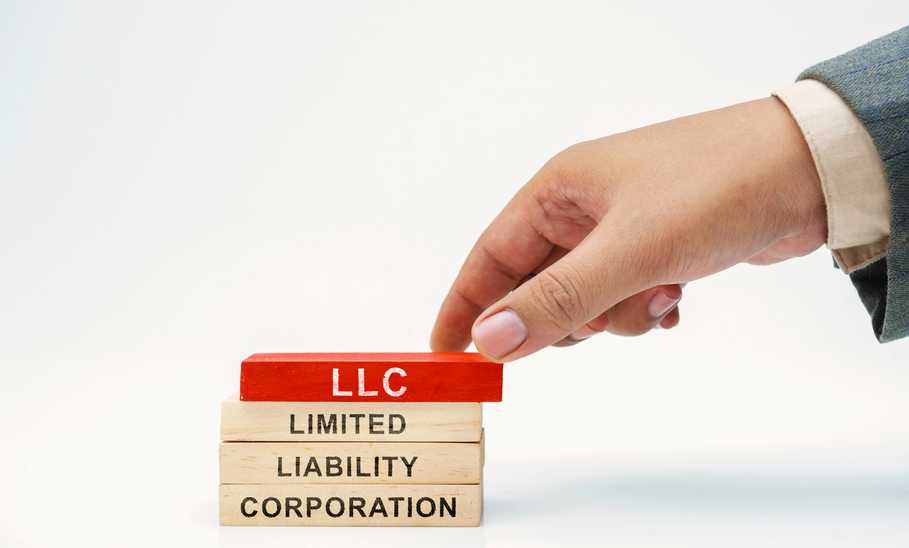How to Start an LLC in California: A Step-by-Step Guide

Our evaluations and opinions are not influenced by our advertising relationships, but we may earn a commission from our partners’ links. This content is created by TIME Stamped, under TIME’s direction and produced in accordance with TIME’s editorial guidelines and overseen by TIME’s editorial staff. Learn more about it.
Starting a business can be an adventure. However, as with all good adventures, it also comes with risks. A limited liability company (LLC) is a great way to shield your personal assets from business debts and liabilities. An LLC can also make it easier if you want to go into business with a partner. If you’ve chosen to start a business in California and you’ve decided to form an LLC to do it, here are the next steps you should take.
Found is a financial technology company, not a bank. Business banking services are provided by Piermont Bank, Member FDIC. The funds in your account are FDIC-insured up to $250,000 per depositor for each account ownership category. The Found Mastercard Business debit card is issued by Piermont Bank pursuant to a license from Mastercard Inc. and may be used everywhere Mastercard debit cards are accepted.
*Advanced, optional add-on bookkeeping software available with a Found Plus subscription for $19.99/month or $1149.99/year. There are no monthly account maintenance fees, but transactional fees for wires, instant transfers, and ATM apply. Read more here.
These are the required steps that you must take to legally form your LLC in California.
The first—and possibly most exciting—step is to choose a name for your new business. In California, you must have a term in the name of your LLC that identifies it as an LLC, such as:
You’ll want to make sure your business name is unique and not misleading. You can do a business name search on the Secretary of State’s website. If you’ve fallen in love with a business name but aren’t ready to register your LLC yet, you can reserve the name for a period of 60 days by filing a name reservation request and paying a $10 fee.
A registered agent—also known as an agent for service of process in California—receives and processes any official documents on behalf of the LLC. The registered agent does not have to be an LLC member, but the person does have to be 18 or older and have a physical address within the state of California. You can also pay a third-party service to act as your registered agent. The registered agent’s name and address become part of public record in California.
Your LLC is officially registered with the state when you file your Articles of Organization with the California Secretary of State. You have several options for filing them. For the fastest turnaround time, you can file on the Secretary of State’s website. You can also print and complete the Articles of Organization (Form LLC-1) to either submit it in person or via the mail. If you submit the form in person, there is an additional $15 special handling fee. All submissions—online, mailed, and in person—have a $70 filing fee.
An operating agreement is required in the state of California. It is not a form that you have to file with the state, but it is used internally by your business. You should keep it with all your other important LLC documents. This document outlines important operating rules for your business, such as:
After you’ve registered your LLC with the state, you still have some other important items to attend to. There are several ongoing tasks that you must complete in order to keep your LLC in good standing with the state of California. Other items below may not be required, but they just make good business sense.
An employer identification number (EIN) is not required if you are the only owner of an LLC, taxed as a sole proprietorship, and have no other employees. However, it is a great way to keep your business and personal assets separated. You can use an EIN to open a business bank account, pay contractors or employees, and apply for business licenses and permits. You can determine your eligibility and apply for an EIN online at the IRS website using its EIN Assistant tool.
Within 90 days of the date you filed your Articles of Organization, you should file your Statement of Information (Form LLC-12) and pay the $20 filing fee. After the first year, your Statement of Information is due every two years. This statement lists important details about your LLC such as:
Depending on your business activities and the city or county in which your business is located, there are various other business licenses or permits you will need. California offers an online tool to help you search for licenses and permits you may need. Be sure to set a reminder to renew each of your licenses as they expire so your LLC remains in good standing.
In California, there is an annual $800 LLC franchise tax that you must pay. The first payment is due by the 15th day of the 4th month after the date your LLC is registered with the Secretary of State. All subsequent payments are due by the 15th day of the fourth month of the tax year. The payment is due every year until you cancel your LLC, whether or not you conduct business.
The state LLC tax return you are required to file is based on how your LLC is taxed at a federal level. Typically, a single-member LLC is a disregarded entity—taxed on your own Form 1040, U.S. Individual Income Tax Return. A multi-member LLC is typically treated as a passthrough like a partnership—where each member pays tax on their portion of the profit or loss on their own tax returns. However, you can also opt for corporate taxation for your LLC.
Here are the state forms you should file based on your federal tax-filing method.
A new step was added to the process, as of Jan. 1, 2024. All LLCs now must file a Beneficial Ownership Information (BOI) Report with the U.S. Financial Crimes Enforcement Network (FinCEN). Here’s how the deadlines work: Those who created their LLC before Jan. 1, 2024, have until Jan. 1, 2025, to file an initial BOI report. LLCs created in 2024 have 90 calendar days to file; those formed in 2025 or later have 30 days.
There are many benefits to forming an LLC in California, but you should be aware of the downsides as well.
You can limit your personal liability for business debts. If your business is sued, your personal assets—such as your house and car—can be shielded from the lawsuit settlement. However, you should be aware that your personal liability protection is not limitless with an LLC.
It is easier to go into business with others. You can simply add or remove a member to the LLC through the Operating Agreement. You can also use your operating agreement to outline each member’s contributions to the business, their portion of the profit and loss, and what each member must do to leave the business.
There are limits to the personal liability protection if you happen to pierce the veil of the LLC. For example, the shield can be pierced if you do not adequately separate your business and personal assets. This is another great reason to have an EIN and separate bank account for your business, even if you operate it as a single-member LLC with no other employees.
Maintaining an LLC in California comes with annual—and biennial for the Statement of Information—responsibilities and expenses. The annual $800 LLC franchise tax is the highest in the country. You will also have to file your California LLC income tax return.
There are several other business structures that you may want to consider in California. Each one has its own pros and cons depending on your specific business activities. Get to know the different types of business structures and how to choose the right one for you.
Other business structures in California include:
Here are some useful resources to help you set up your California LLC.
Starting a business is a big decision. If you’ve researched all of the potential business structures in California and decided on an LLC, you should follow the step-by-step guide above to ensure you don’t miss any crucial pieces in the formation process. If you aren’t confident about the entire setup process, you can pay a company like LegalZoom to register your LLC with the state of California on your behalf. LegalZoom has legal experts who understand the intricacies of forming an LLC in the state of California.
When you file your initial Articles of Organization in California, there is a $70 online processing fee. After you file the Articles of Organization, you must submit a Statement of Information within 90 days and biennially thereafter. The Statement of Information fee is $20.
Following the steps outlined above, you can register your LLC in California yourself by filing the LLC Articles of Organization form on the Secretary of State’s website and paying the $70 online-processing fee.
The $800 franchise tax is the annual cost for operating an LLC in California.
After you’ve registered your LLC with the state of California, these are the ongoing requirements:
The information presented here is created by TIME Stamped and overseen by TIME editorial staff. To learn more, see our About Us page.




